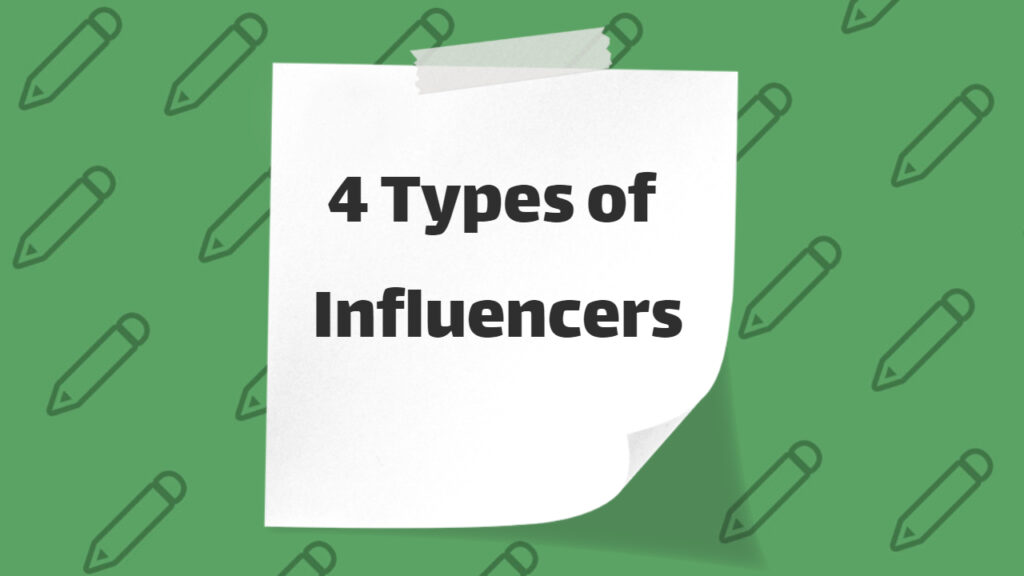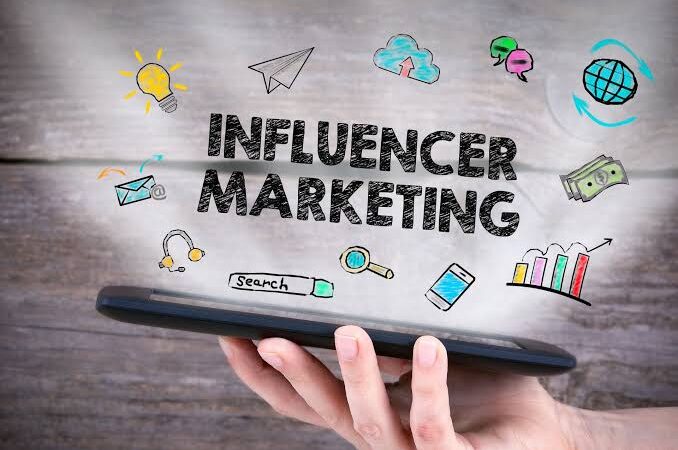Table of Contents
In today’s digital world, one question looms large and persistent: What is influencer marketing? This is because influencer marketing has stood the test of time and emerged not just as a powerful tool but as a transformative force in the realm of marketing and brand promotion.
The concept leverages the influence and ability of individuals known as influencers, who possess the ability to sway people’s opinions and purchase decisions.
Their popularity or expertise in specific areas enables them to influence their followers significantly, making them potential assets for brands looking to generate or nurture leads. They put out content that shapes the landscape and encourages engagement in the form of likes, shares and comments.
The rise of influencer marketing can be traced back to the invention of social media platforms, which have paved the way for digital influencers to create relatable content and for social media users to consume and evaluate it as they deem fit. According to a Statista report, 31.6 million Nigerians are active social media users. The recommendations of influencers are not merely suggestions.
They are trusted opinions that influence the choices of their followers, extending to products and services. In this article, we embark on a deep dive into the intricacies of influencer marketing, answering the question of what influencer marketing is and exploring its benefits, potential pitfalls, and importance in shaping your brand’s destiny.
READ ALSO: Brand Positioning: Build a Strong Identity for Your New Business
Various Types of Influencers

Understanding the various types of influencers is crucial for crafting an effective influencer marketing campaign. Research has shown various categories of influencers based on several factors. Some of them include:
1. Mega
These are well-known individuals who have the ability to reach a large audience. They are celebrities, artists, actors and public figures who have amassed significant followings due to their fame. They can instantly expose your brand to millions of followers, and they often have a global fanbase, making them suitable for international campaigns. Mega influencers are best for large-scale businesses as they have an international audience.
2. Macro
Also known as mini-celebrities, these individuals have a dedicated following and gained popularity through social platforms like YouTube by creating content about their areas of interest, such as fashion, lifestyle, and comedy, to mention but a few. Their platforms often have a follower range of 500,000 to one million. They are often known to have an engaged and dedicated audience.
3. Micro
These are regular people who have a smaller but loyal group of followers. They are known for their authenticity and focus on specific niches or hobbies. They often have 10,000 to 100,000 followers. Micro-influencers often boast higher engagement rates compared to macro-influencers or celebrities.
Their recommendations feel more genuine and trustworthy to their audience. Collaborating with micro-influencers can be cost-effective. They have advantages: Macro-influencers have dedicated and engaged audiences in their niche. While more affordable than celebrities, they still offer significant reach.
4. Nano
Nano-influencers have the smallest followings. They have a very small and tight-knit community of followers, typically between the range of 100 to 1,000 followers.
These influencers are often everyday individuals who are passionate about a specific niche and make their content align with the niche. Their recommendations resonate deeply with their close-knit communities, and collaborating with nano-influencers can be budget-friendly.
The type of influencer you select to work with depends on your campaign objectives. Macro influencers may fit more into brand awareness initiatives, while nano influencers might be effective in generating leads among niche audiences. Utilising different types of influencers can however help create a holistic strategy that reaches different segments of your brand’s target audience.
MORE READ: How to Use the Right Media Partner to Sell your Product
Benefits of Harnessing Influencer Marketing
There are so many advantages to using influencer marketing for lead generation or lead nurturing. This is because the influencers are key opinion leaders on social media. By implication, they have a huge impact on the thought process of their followers. Apart from this, the brands they get to work with enjoy:
1. Increased Trust and Authenticity
Influencers are known to have built a genuine connection with their audience based on trust. When you partner with an influencer, the existing connection makes it highly feasible for the followers to accept the influencer’s recommendations.
2. Target the Right Audience
Influencers typically focus on specific areas or have a large follower count in that area. Niching down is advantageous for a brand since it allows it to effectively reach its potential customers. This is why your brand should work with influencers with similar values and visions.
3. Elevate Content Quality
All influencers create content, whether in the form of texts, videos, audiovisuals, or graphics. This means they tend to only create aesthetically pleasing and engaging content. Your brand can leverage influencer marketing to improve the quality of the content you disseminate to achieve the campaign objectives.
4. Enhance Search Engine Optimisation
The visibility of a brand increases when it utilises influencer marketing effectively. This is because the influencer(s) often create content for a brand, ensuring that they include the brand’s website, links, hashtags, and mentions. This drives traffic to your brand platforms and increases your domain authority.
5. Immediate Implementation of Campaigns
Influencer marketing strategy campaigns are usually implemented within a short span of time. This makes it easy to jump on trends and be flexible in responding to dynamic market changes within a short timeframe.
6. Partnership
When your brand builds a cordial relationship with influencers, it can lead to a long-term partnership. This increases the consistency with which the target audience comes across the brand, and if that happens, the audience starts to subconsciously or consciously associate the brand with the goods or services it offers, thereby enhancing patronage and brand loyalty.
7. Measurable Results
Your brand gets the opportunity to assess the effectiveness of its implementation because the campaigns by influencers are usually measurable. Key metrics such as likes, comments, shares, click-through rates, and conversions give insights into the campaign’s success level.
READ ALSO: Online Advertising for Small Business (2023)
Navigating the Process of Finding the Right Influencers
Selecting the best influencer for your brand requires careful planning and consideration of numerous factors. These include:
1. Audience Alignment
The right influencer for your brand is one whose audience demographics in terms of age, interest, and preferences align with your brand’s. Make sure to outline the qualities of your target audience, then analyse the audience of prospective influencers to ensure that they match your target audience.
2. Relevance to Niche
Your brand should partner with influencers who are in the same industry or niche. This is to ensure that you are reaching out to the right target audience.
3. Brand Synergy
Your product or service’s value must be in sync with the messages of the influencer(s) you seek to work with to form a meaningful partnership.
4. Engagement
While checking out prospective influencers, make sure to check out the influencer’s engagement rate, which is measured by the likes, comments, shares, and follower count. The higher the engagement of an influencer, the better the possibility of a conversion rate. This is because higher engagement symbolises an active audience.
5. Budget Consideration
It is essential to have a budget when preparing for influencer marketing. Check if the influencer’s payment rates fit into your budget or if you need to increase your budget; this will help shape the type of influencer you will work with. Price rates are never static and vary based on factors like the popularity of influencers or follower count.
6. Reputation Assessment
Authenticity is the cornerstone of effective influencer marketing. Customers are more likely to trust influencers who align with the brand’s values and products or services. Evaluate the credibility of the influencers you are looking to work with and make sure to work with individuals with a trustworthy reputation.
7. Availability
Before contacting an influencer, investigate their calendar to see if they can accommodate your campaign and deliver on time.
8. Contract
Check if an influencer is only interested in a long-term partnership. Long-term contracts help your brand deepen its connection with its customers. Draft a comprehensive contract detailing the terms of remuneration, rights, and other terms to protect both your brand and the influencer.
READ ALSO: Habib Yoghurt Price List and Other Unknown Facts
Challenges of Influencer Marketing

Like every other phenomenon, influencer marketing has its fair share of obstacles that brands encounter during strategy implementation. Understanding and addressing these challenges is key to navigating a successful influencer marketing campaign. Here are some key challenges that can come up:
1. Collaborating with Influencers
The cost of collaborating with popular influencers is often significantly high. This is why it is important for brands to balance the prospective return on investment with their budget.
2. Managing Expectations
Brands may struggle with handing over control of content creation and execution to influencers. Although giving influencers the freedom to explore their creativity is important, it can be risky if the content doesn’t align with the brand’s image or values.
3. Long-term relationship
Building and maintaining long-term relationships with influencers can be challenging. Consistency is key to successful influencer marketing, but it requires effort from both parties, most especially the brand.
4. Ethics and Legal Issues
There are various legal considerations in influencer marketing. This includes contracts, intellectual property rights, and compliance with advertising regulations set by bodies like the Advertising Regulatory Council of Nigeria (ARCON). Brands need to ensure they do not incur the wrath of the law.
5. Authenticity
Maintaining authenticity and trust can be tasking. If influencers promote products or services too frequently or without genuine enthusiasm, it can build doubt in the minds of their followers. Some influencers may have a significant number of fake or inactive followers, which will hinder the engagement rate. Brands need to carefully vet influencers before partnering with them.
READ ALSO: Perceptual Map: A Comprehensive Guide
What Is Influencer Marketing: The Power Behind It
In conclusion, influencer marketing has emerged as an effective strategy adopted by small, medium and large-scale businesses across the globe. As we have explored the concept of influencer marketing, we have highlighted that influencer marketing has the potential to significantly impact brand awareness, engagement, and sales.
However, it is pertinent to know that influencer marketing is not the ultimate universal solution, and its success depends on careful planning, execution, and continuous monitoring.
Furthermore, Influencer marketing is not just about mega influencers but also about micro and nano-influencers who often have more engaged and niche audiences. They can be particularly valuable for brands seeking to target specific demographics or niches.
By understanding the basics, staying up to date about trends and forming meaningful connections with influencers and audiences, brands can continue to maximize the power of influencer marketing to their advantage in the ever-competitive advertising world.
READ ALSO: Competitive Analysis for Entrepreneurs in 2018
Frequently Asked Questions (FAQs)
How do I choose the right influencers for my brand?
You have to look out for factors like authenticity, relevance to your niche, reputation, budget, engagement rate and audience.
How do I measure the success of an influencer marketing campaign?
The yardstick for measuring a campaign’s success is whether or not the set objectives have all been fulfilled. A brand can look out for conversion rates and engagement metrics like comments, shares, likes, and return on investment to determine the effectiveness of campaigns.
Are there legal considerations in influencer marketing?
Several essential legal considerations in influencer marketing include privacy and data protection laws, copyright, and contractual agreements.

